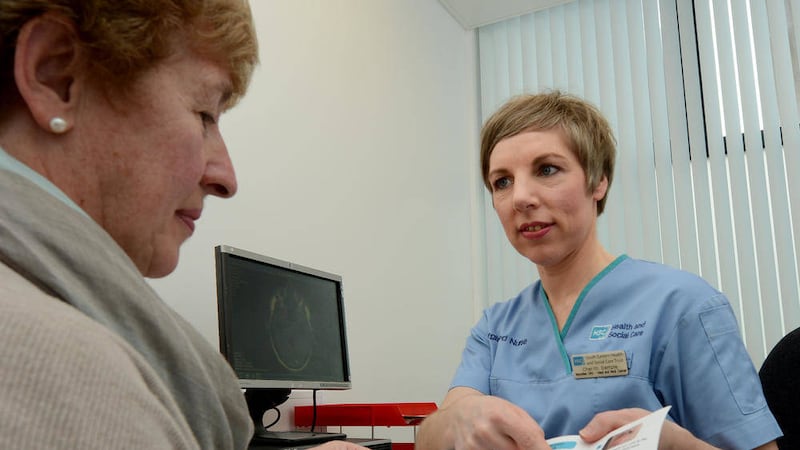AS an 11-year-old primary school pupil, Cherith Semple wrote in her end-of-year journal that her life ambition was "to become a nurse".
Thirty years on, the Dungiven woman - who has been named the Royal College of Nursing 2015 Nurse of the Year - stumbled across her childhood musings, which she has no memory of recording.
With three aunts in the profession, the quietly-spoken Macmillan cancer specialist has been hailed as representing a 'new generation' of nurses following her pioneering research into aftercare for patients with head and neck cancers.
After completing a PhD in 2005, the 42-year-old returned to her staff job at the Ulster Hospital in Dundonald.
"Head and neck cancer are very much under-publicised cancers. Working in the very privileged role as a Macmillan nurse with patients, I discovered that post-treatment was a very vulnerable and challenging time for some," she said.
"During my research, there was a little lady in her 80s with tongue cancer who had a resection (part of her tongue removed). At the same, her daughter-in-law had breast cancer. She said to me, 'I can’t choose who I share my cancer diagnosis with as it's such a visual cancer'.
"Some people do cope particularly well but others find it hugely difficult. I wanted to explore key reasons for that. I wanted to find out how we as clinical staff could explore this and improve their quality of life. These patients were dealing with significant challenges to day-to-day life after such radical surgery."
There are around 300 new head and neck cancer cases each year in the north, including tongue cancer and cancer of the voicebox.
The disease is traditionally associated with men in their 60s and 70s who have a history of smoking and alcohol abuse.
But in the last five years, there has been an increase in younger men and women diagnosed with the disease, a trend that is being linked to the human papillomavirus (HPV) and sexually transmitted diseases.
"After I came back from my PhD, I began to realise there were younger patients with the disease and that their support needs were different from the more traditional group of men. We are nearly have two distinct groups of patients.
“I never want to minimise anyone else's cancer but these group of patients had very unique needs after such radical surgery that affects their basic everyday life, such as eating, talking and swallowing.”
Using iPad technology, Cherith began to gather feedback from out-patient clinics and used this information to guide out-patient visits.
A volunteer is an "instrumental" part of the process, according to Cherith, as they guide the patient on how to use the technology to highlight their key concerns prior to a consultation.
As a result of feedback received from patients, Cherith introduced a follow-up telephone aftercare support service after completion of treatment and prior to routine follow-up – a service that wasn’t there before.
This was in response to patients reporting that they felt most vulnerable following discharge from hospital.
Through patient and carer education and support, she helped patients to develop skills and confidence for self-surveillance, and enabled fast-track referral to follow-up clinics. This has created a patient-led follow-up service.
"The patients have told me they felt this gave them an avenue to express their concerns and get direction. There was also that continuity of care," she said.
"It was an opportunity not only to explore how the patient was but how things were going from a family and relationship perspective. Counselling is part of our Macmillan nursing skills.”
One of the major concerns among patients was the fear of their cancer coming back.
“We gave them tips and strategies on how to manage this... ultimately I want to improve the patient's quality of life and have less visits to the GP over concerning signs and symptoms. I also want patients to integrate sooner into society and maximise their living."
The prestigious RCN award was given to Cherith at a ceremony in the Culloden hotel last month.
The judging panel praised her "commitment, compassion and dedication to the care of patients and their families" and described her success in integrating research, education and practice as "truly remarkable".



